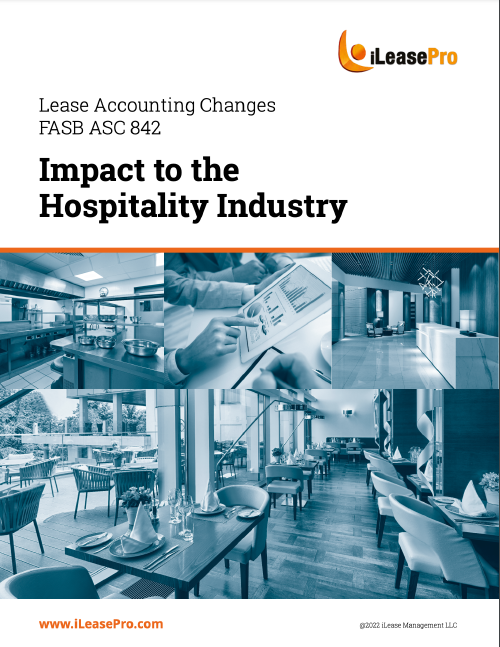How ASC 842 Lease Accounting Affects the Hospitality Industry

The impact of the ASC 842 Lease Accounting Standard on the Hospitality Industry
The forthcoming ASC 842 lease accounting standard is poised to have a substantial impact on the hospitality industry, as detailed in our whitepaper. In this dynamic sector, where lease agreements are commonplace, understanding the implications of ASC 842 versus current GAAP accounting requirements is paramount.
This whitepaper delves into the specifics, offering a comprehensive example of a typical situation to illustrate how ASC 842 will affect the financial statements of businesses within the hospitality industry.
One of the most notable outcomes of the new lease accounting standard is the significant increase in liabilities that lessees must record on their balance sheets. This change is expected to have a tangible negative impact on debt-to-equity ratios, a key financial metric for many hospitality organizations.
For those lessees that rely on debt financing arrangements that include restrictive financial covenants, the escalation in liabilities may pose a unique challenge. It might necessitate engaging in discussions with lenders to seek waivers or amendments to these covenants, reflecting the importance of proactive communication with financial partners.
While there is the anticipation that lease versus purchase analyses will become more crucial, potentially leading to a decrease in leasing activity, it's important to consider the broader context. Many businesses, especially in the hospitality sector, face cash flow constraints. In such cases, leasing offers an attractive form of financing, allowing organizations to conserve upfront cash while accessing essential assets.
The ASC 842 lease accounting standard will undoubtedly reshape financial reporting in the hospitality industry, causing an increase in recorded liabilities and potential challenges in debt-to-equity ratios. However, the allure of leasing as a financing option, especially for businesses aiming to minimize upfront cash outlays, remains compelling. The industry is poised for change, and strategic financial planning will be key to navigating these shifts effectively.
For more details read our ASC 842 Impact to the Hospitality Industry whitepaper.



